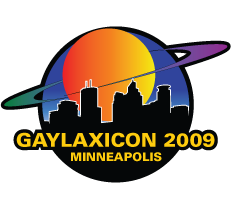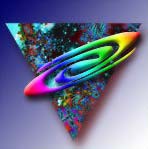The World Fantasy Awards are given each year by the World Fantasy Convention for the best fantasy fiction published in English during the previous calendar year. The awards have been described by book critics such as The Guardian as a "prestigious fantasy prize", and one of the three most prestigious speculative fiction awards, along with the Hugo and Nebula Awards. The World Fantasy Award—Anthology is given each year for anthologies of fantasy stories by multiple authors published in English. An anthology can have any number of editors, and works in the anthology may have been previously published; awards are also given out for collections of works by a single author in the Collection category. The Anthology category has been awarded annually since 1988, though from 1977 through 1987 anthologies were admissible as nominees in the Collection category. During the ten years they were admissible for that category they won the award seven times and represented 38 of the 56 nominations.

Ian McDonald is a British science fiction novelist, living in Belfast. His themes include nanotechnology, postcyberpunk settings, and the impact of rapid social and technological change on non-Western societies.

Gaylaxicon is a recurring science fiction, fantasy and horror convention that focused on gay, lesbian, bisexual and transgender topics. It has taken in various locations in the United States and occasionally Canada, often on the East Coast.

The Gaylactic Spectrum Awards are given to works of science fiction, fantasy and horror that explore LGBT topics in a positive way. Established in 1998, the awards were initially presented by the Gaylactic Network, with awards first awarded in 1999. In 2002 the awards were given their own organization, the Gaylactic Spectrum Awards Foundation.
Steve Berman is an American editor, novelist and short story writer. He writes in the field of queer speculative fiction.

Lavie Tidhar is an Israeli-born writer, working across multiple genres. He has lived in the United Kingdom and South Africa for long periods of time, as well as Laos and Vanuatu. As of 2013, Tidhar has lived in London. His novel Osama won the 2012 World Fantasy Award—Novel, beating Stephen King's 11/22/63 and George R. R. Martin's A Dance with Dragons. His novel A Man Lies Dreaming won the £5000 Jerwood Fiction Uncovered Prize, for Best British Fiction, in 2015. He won the John W. Campbell Memorial Award for Best Science Fiction Novel in 2017, for Central Station.

The Gaylactic Network is a North American LGBT science fiction fandom organization. It has several affiliate chapters across the United States and Canada, with a membership of LGBT people and friends, sharing an interest in science fiction, fantasy, horror, comics and role-playing games.
The Aurealis Awards are presented annually by the Australia-based Chimaera Publications and WASFF to published works to "recognise the achievements of Australian science fiction, fantasy, horror writers". To qualify, a work must have been first published by an Australian citizen or permanent resident between 1 January and 31 December of the corresponding year; the presentation ceremony is held the following year. It has grown from a small function of around 20 people to a two-day event attended by over 200 people.
Bending the Landscape is the title of an award-winning series of LGBT-themed anthologies of short speculative fiction edited by Nicola Griffith and Stephen Pagel. Three books were produced between 1997 and 2002, subtitled Science Fiction, Fantasy, and Horror. Each volume won LGBT or genre awards.
Lambda Literary Awards are awarded yearly by the United States-based Lambda Literary Foundation to published works that celebrate or explore LGBT themes. The awards are presented annually for books published in the previous year. The Lambda Literary Foundation states that its mission is "to celebrate LGBT literature and provide resources for writers, readers, booksellers, publishers, and librarians—the whole literary community."
Steven Harper Piziks is an American author of science fiction.
The Aurealis Awards are presented annually by the Australia-based Chimaera Publications and WASFF to published works in order to "recognise the achievements of Australian science fiction, fantasy, horror writers". To qualify, a work must have been first published by an Australian citizen or permanent resident between 1 January and 31 December of the corresponding year; the presentation ceremony is held the following year. It has grown from a small function of around 20 people to a two-day event attended by over 200 people.
The Aurealis Awards are presented annually by the Australia-based Chimaera Publications and WASFF to published works in order to "recognise the achievements of Australian science fiction, fantasy, horror writers". To qualify, a work must have been first published by an Australian citizen or permanent resident between 1 January and 31 December of the corresponding year; the presentation ceremony is held the following year. It has grown from a small function of around 20 people to a two-day event attended by over 200 people.
The Aurealis Awards are presented annually by the Australia-based Chimaera Publications and WASFF to published works in order to "recognise the achievements of Australian science fiction, fantasy, horror writers". To qualify, a work must have been first published by an Australian citizen or permanent resident between 1 January and 31 December of the corresponding year; the presentation ceremony is held the following year. It has grown from a small function of around 20 people to a two-day event attended by over 200 people.

Aqueduct Press is a publisher based in Seattle, Washington, United States that publishes material featuring a feminist viewpoint.
The Aurealis Awards are presented annually by the Australia-based Chimaera Publications and WASFF to published works in order to "recognise the achievements of Australian science fiction, fantasy, horror writers". To qualify, a work must have been first published by an Australian citizen or permanent resident between 1 January and 31 December of the corresponding year; the presentation ceremony is held the following year. It has grown from a small function of around 20 people to a two-day event attended by over 200 people.
The Aurealis Awards are presented annually by the Australia-based Chimaera Publications and WASFF to published works in order to "recognise the achievements of Australian science fiction, fantasy, horror writers". To qualify, a work must have been first published by an Australian citizen or permanent resident between 1 January and 31 December of the corresponding year; the presentation ceremony is held the following year. It has grown from a small function of around 20 people to a two-day event attended by over 200 people.
The Aurealis Awards are presented annually by the Australia-based Chimaera Publications and WASFF to published works in order to "recognise the achievements of Australian science fiction, fantasy, horror writers". To qualify, a work must have been first published by an Australian citizen or permanent resident between 1 January and 31 December of the corresponding year; the presentation ceremony is held the following year. It has grown from a small function of around 20 people to a two-day event attended by over 200 people.






